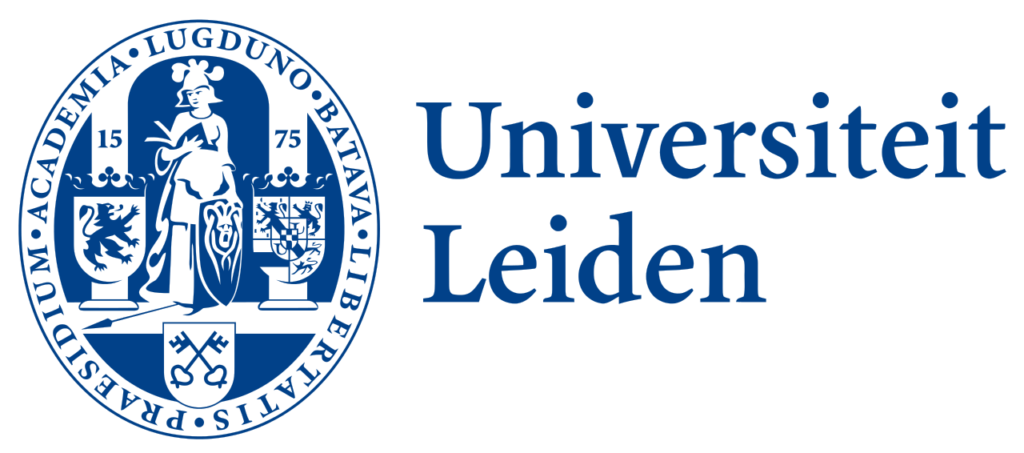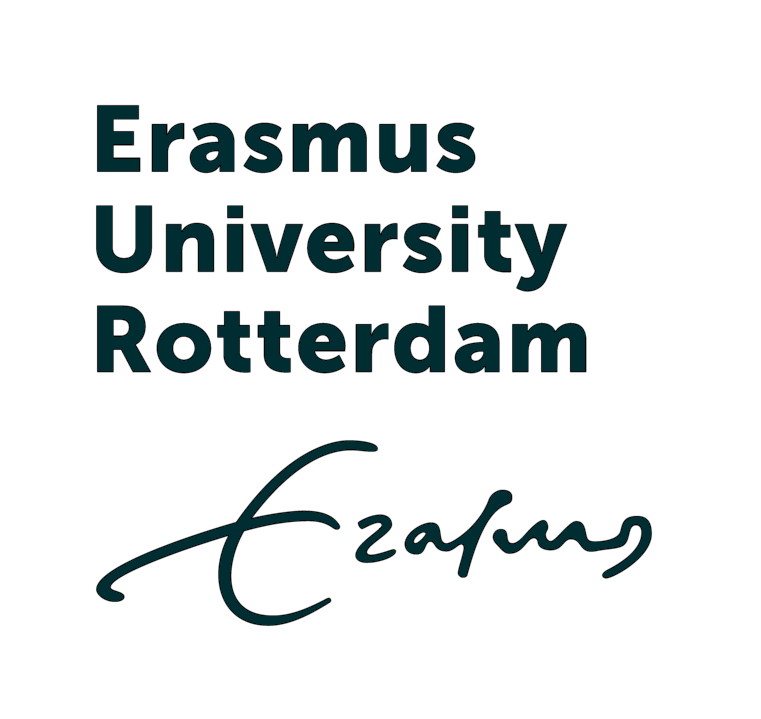Best Schools for Engineering in Europe
Top-Ranked Institutions Revealed
Europe has established itself as a hub for engineering brilliance, home to some of the world’s most prestigious institutions. Aspiring engineers from all corners of the globe look to European universities for their advanced educational frameworks, state-of-the-art facilities, and research opportunities. With a rich tradition of academic excellence, these institutions offer a variety of engineering disciplines, catering to a broad spectrum of interests and career aspirations.

Within this continent, the best engineering schools are distinguished by their rigorous academic programs and their commitment to innovation and research. Engineering education in Europe is characterized by a strong theoretical foundation coupled with practical application, ensuring that graduates are well-prepared for the demands of the global job market. Furthermore, Europe’s top engineering institutions maintain robust connections with the industry, providing students with invaluable exposure to real-world challenges and career opportunities.
Key Takeaways
- European engineering schools are recognized for their high academic standards and research contributions.
- These institutions offer diverse engineering specializations and industry partnerships for practical experience.
- Students benefit from international environments and innovative educational approaches in Europe’s best engineering universities.
Overview of European Engineering Education
European engineering education stands at the forefront of science and technology, offering a diverse range of programs across many universities. These institutions emphasize a strong theoretical foundation coupled with practical experience. Prospective students have a broad selection of colleges to choose from, each providing various specializations within engineering disciplines.
Key Aspects of Engineering Programs in Europe:
- Accreditation: Many programs adhere to standards set by organizations such as ABET and ENAEE.
- Research and Innovation: Integration with entities like Horizon Europe enhances research opportunities.
- Mobility Programs: Programs like Erasmus+ facilitate student exchanges, promoting a cross-cultural educational environment.
Engineering Schools:
- Notable Rankings: EngiRank and EduRank provide annual assessments of engineering schools.
- Pedagogical Approach: The curriculum is designed to balance both academic theory and hands-on laboratory work.
- Graduate Prospects: Graduates are well-equipped for the global job market in various engineering sectors.
The range of engineering schools in Europe caters to the aspirants’ diverse interests, from traditional disciplines like civil and mechanical engineering to cutting-edge fields like biotechnology and sustainable energy. Europe’s commitment to academic excellence and innovation is evident in the robust structure and outcomes of its engineering education.
Top Ranked Engineering Schools in Europe
When assessing the top-ranked engineering schools in Europe, it is important to turn to credible sources that compile these rankings based on a variety of factors including academic reputation, employer reputation, research output, and more. Among the most respected sources for such information are the QS World University Rankings and Times Higher Education Rankings.
Understanding University Rankings
University rankings provide a comparative view of institutions based on various indicators of excellence. They are meant to guide prospective students and researchers in identifying schools with strong engineering programs. However, one should consider the methodologies used in these rankings to ensure they align with your personal and academic priorities.
QS World University Rankings
The QS World University Rankings for Engineering and Technology showcase Europe’s leading institutions in the field:
- University of Cambridge – England
- ETH Zurich – Swiss Federal Institute of Technology – Switzerland
- Imperial College London – England
This ranking system evaluates universities based on academic and employer reputation, as well as research citations.
Times Higher Education Rankings
On the other hand, the Times Higher Education (THE) Rankings use a different set of criteria focusing also on teaching environment, research environment, international outlook, and knowledge transfer. These rankings reflect the multiplicity of strengths that a university has across its engineering disciplines. They include some of the same names but may differentiate in order based on their bespoke metrics.
Spotlight on Notable Engineering Schools

The landscape of engineering education in Europe is distinguished by several institutions renowned for their academic rigor, cutting-edge research, and global impact. They not only serve as beacons of innovation but also shape the future of engineering. Here, we cast a light on some of the most prestigious schools in the field.
ETH Zurich – Swiss Federal Institute of Technology
ETH Zurich, officially known as ETH Swiss Federal Institute of Technology, stands as a pinnacle of engineering education. The institution boasts an illustrious history of research and academic excellence, with a repertoire that spans across various engineering disciplines.
University of Cambridge
The University of Cambridge is synonymous with academic greatness, having nurtured countless leaders and innovators. Regarded for its engineering prowess, Cambridge sets the benchmark for scholarly distinction through depth of inquiry and breadth of study.
Imperial College London
At Imperial College London, students and faculty are at the frontier of engineering research. Imperial’s commitment to providing a rigorous education is reflected in its consistent ranking among Europe’s top engineering schools.
Delft University of Technology
Netherlands’ pride, the Delft University of Technology, is a bastion of technological education and practical innovation. Delft excels with its hands-on approach to engineering, preparing students to address real-world challenges effectively.
Technical University of Munich
The Technical University of Munich emerges as Germany’s leading institution in engineering. Known for its robust industry connections, TUM provides a dynamic environment where theoretical knowledge is paired with practical application, fostering the next generation of engineers.
FREE INSIDER’S GUIDE

Top 5 English-Taught Colleges in Europe
Kickstart you education abroad with a powerful degree taught entirely in English, all without taking on any student loans!
Research Excellence in Engineering

European engineering universities are renowned for their strong research performance, being pivotal in fostering innovative development and technological advancements. Their research output is often quantified through the volume of academic papers produced and the subsequent citations each paper receives.
- Citations: A crucial metric for gauging the impact and relevance of engineering research. High citation counts are indicative of the influence and adoption of research findings within the scholarly community.
Universities across Europe prioritize collaborative research, involving scholars from diverse specializations. This approach amplifies the depth and breadth of research, reaching into critical areas such as nuclear fusion. The potential of nuclear fusion as a clean and abundant energy source makes it a significant focus of engineering research, drawing substantial citations and contributing to a university’s research prestige.
Research institutions often house state-of-the-art facilities and provide environments that encourage cross-disciplinary studies. This proves instrumental in driving innovation, particularly in engineering disciplines where practical application and research are deeply intertwined.
European universities maintain high standards in terms of publication ratings and research performance, making them attractive destinations for scholars worldwide. The academic papers generated by these universities serve as a testament to European engineering programs’ commitment to advancing scientific understanding and solving complex engineering challenges.
Engineering Departments and Specializations

The European landscape of engineering education is shaped significantly by its specialized departments and tailored programs that address the diverse and evolving needs of the industry. Each department encapsulates a different aspect of engineering, reflecting both its historical roots and modern-day applications.
Department of Engineering Science
The Department of Engineering Science often forms the theoretical backbone of an engineering education, offering a broad and foundational understanding suited for a variety of specializations. Students in this department typically explore a spectrum of disciplines, integrating them to solve complex real-world problems.
Mechanical and Process Engineering
Mechanical and Process Engineering primarily focuses on the design, analysis, and manufacture of machines and systems. These departments are vital in sectors such as automotive, aerospace, and manufacturing, where they drive innovation in terms of efficiency, sustainability, and performance.
Nuclear Engineering
Within the realms of Nuclear Engineering, departments take on the responsibility of educating students on the intricacies of nuclear processes, from energy generation to medical applications. Given its critical nature, programs in nuclear engineering are designed with a strong emphasis on safety and regulatory compliance.
Computational Science
Departments specializing in Computational Science serve a cross-disciplinary role by combining computer science, numerical analysis, and mathematical modeling. They are pivotal in addressing intricate problems through simulation and high-performance computing across engineering fields.
Electrification and Energy Systems
The growing field of Electrification and Energy Systems reflects the push towards sustainable energy solutions. Departments in this area are at the forefront of the transition to electric-driven systems, encompassing everything from electric vehicles to smart grid technologies.
Discover all the English-taught European college programs in one place.
Beyond the States provides easy access to 11,600+ European bachelor’s and master’s programs across 870 universities, 550 cities, and 212 areas of study, plus all the resources you need to get there. No sponsorships. No bias.
3400+
English-taught bachelor’s programs in our database.
550
Beautiful European cities to choose from.
$360,170
Typical savings against a private university in the US.
8200+
English-taught master’s programs in our database.
870
Top-tier universities accepting international students.
$65,038
Typical savings against in-state tuition in the US.
Industry Connections and Career Opportunities
Engineering schools in Europe excel not only in academia but also in forging strong industry connections that provide valuable opportunities for their students and alumni. These institutions act as bridges, enabling a smooth transition from academic study to professional practice.
Imperial College London, for instance, boasts an acceptance rate of 15%, indicative of its selectivity and prestige. Here, students often find themselves engaged with a network of industry partners that help cultivate an environment ripe for innovation and employment prospects post-graduation.
The career services offered by these institutions frequently connect students with internships and job placements, ensuring practical experience in the field. These opportunities are often bolstered by strong alumni networks that contribute to a supportive environment, fostering mentorship and career development for even the newest members of the engineering community.
Here is a brief overview of what some top European engineering schools offer in terms of industry connection and career prospects:
| University | Career Services Offered |
|---|---|
| University of Cambridge | Extensive alumni network, internships, and job fairs |
| Imperial College London | Partnership with global industries, year in industry options |
Students can anticipate stepping into a future where the environment they’ve been educated in dovetails seamlessly with the career they aspire to. This nurtures not just job readiness, but also an entrepreneurial spirit, making these graduates highly sought after in the global job market.
Through these partnerships, schools help students and alumni alike to navigate the engineering sector’s evolving landscape, equipping them with the necessary tools to thrive within the field and adapt to its future advancements.
International Perspectives and Exchange Programs
European engineering schools have consistently attracted international students due to their high standards of education, diverse cultural landscapes, and strong global links. Many top institutions offer exchange programs, allowing students to experience different educational and cultural environments. For instance, the University of Freiburg offers an exchange program in Germany specifically tailored for engineering students with German language proficiency.
Admission procedures for these programs typically require a demonstrated level of academic performance, language competency—often in the country’s official language, and eligibility to receive credit from the student’s home institution. Additionally, such programs may provide opportunities for internships and research, enriching the educational experience.
Studying engineering in Europe can significantly enhance a student’s perspective on global engineering practices. Courses are often taught by highly qualified professionals with international experience in their field. Academic collaborations extend across continents, reflecting the interconnected nature of modern engineering challenges.
| Advantages for International Students |
|---|
| Diverse cultural and academic environments |
| Access to high-quality education and faculty |
| Opportunities for practical experience through internships |
In summary, leveraging exchange programs within European engineering schools can provide international students with a comprehensive educational experience that extends beyond traditional classroom learning, preparing them for a globalized job market.
Innovations in Engineering Education
European engineering education has taken bold steps to redefine how students interact with the field. Universities are now emphasizing life-long learning opportunities, integrating innovative teaching methods to prepare future engineers.
The EuroTeQ Engineering Campus epitomizes this shift— a coalition of leading science and technology universities creating an international study program to shape engineering education for the new era. The program is not only for current students but also extends to professionals seeking ongoing education.
Interactive Learning Environments have been developed, blending traditional lectures with hands-on workshops and virtual reality simulations. These immersive experiences equip students with practical skills alongside their theoretical knowledge.
Coursework now regularly incorporates collaborative projects. Students from diverse disciplines must work together to solve real-world engineering challenges. This approach nurtures a set of soft skills—teamwork, communication, adaptability—that are as crucial as technical prowess.
Rankings like those of EngiRank reflect the importance of updated educational criteria, considering factors like innovation and teaching quality alongside traditional measures like academic publications.
- Collaborative Learning:
- Cross-disciplinary teamwork
- Real-world problem-solving
- Technology Integration:
- Virtual reality
- Simulations
European engineering institutions are paving the way for a well-rounded, dynamic educational environment, ensuring that graduates are ready to meet the challenges of modern engineering head-on.
Frequently Asked Questions
Selecting the right engineering school in Europe involves considering various key factors such as global rankings, specialty programs, language of instruction, and the distinctive qualities of each institution.
Which European universities are ranked highest for their engineering programs?
The University of Cambridge and Imperial College London are frequently listed among the highest-ranked engineering universities in Europe, with both institutions boasting significant international reputations for excellence in engineering education.
What are the top engineering institutions in Europe for international students?
For international students, prestigious institutions like ETH Zurich in Switzerland and the University of Oxford in the United Kingdom offer top-tier engineering programs with a global focus, facilitating a diverse academic environment.
Where can I find the most prestigious undergraduate engineering programs in Europe?
Many of Europe’s most prestigious undergraduate engineering programs can be found in the United Kingdom, with the University of Cambridge and Imperial College London at the forefront, offering cutting-edge research opportunities and strong industry links.
How do English-language engineering courses in Europe compare globally?
English-language engineering courses in Europe, such as those offered by the UK’s top universities, are highly competitive on a global scale, often ranking within the global top 20 for their engineering and technology programs.
What makes a mechanical engineering program in Europe stand out?
A mechanical engineering program in Europe may stand out due to its industry partnership, advanced research facilities, and focus on innovation, which is particularly strong in German and Swiss universities renowned for their practical and research-oriented approach.
Which European country is renowned for its excellence in engineering education?
Germany is renowned for its excellence in engineering education, known for its rigorous approach, technical universities (Technische Universitäten), and integration of theoretical knowledge with practical experience, making it a top destination for engineering students.

















